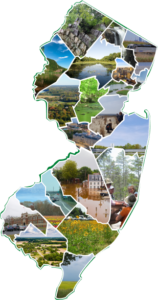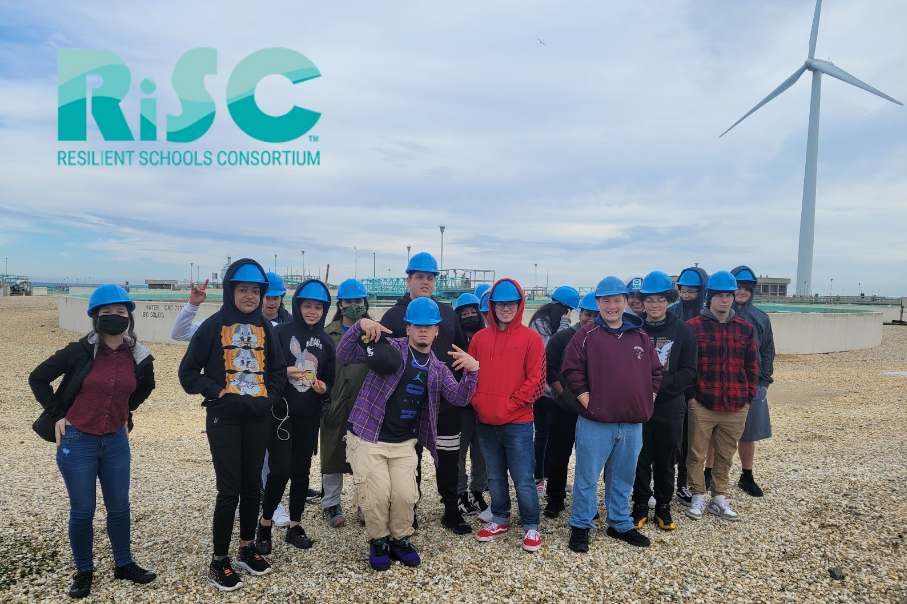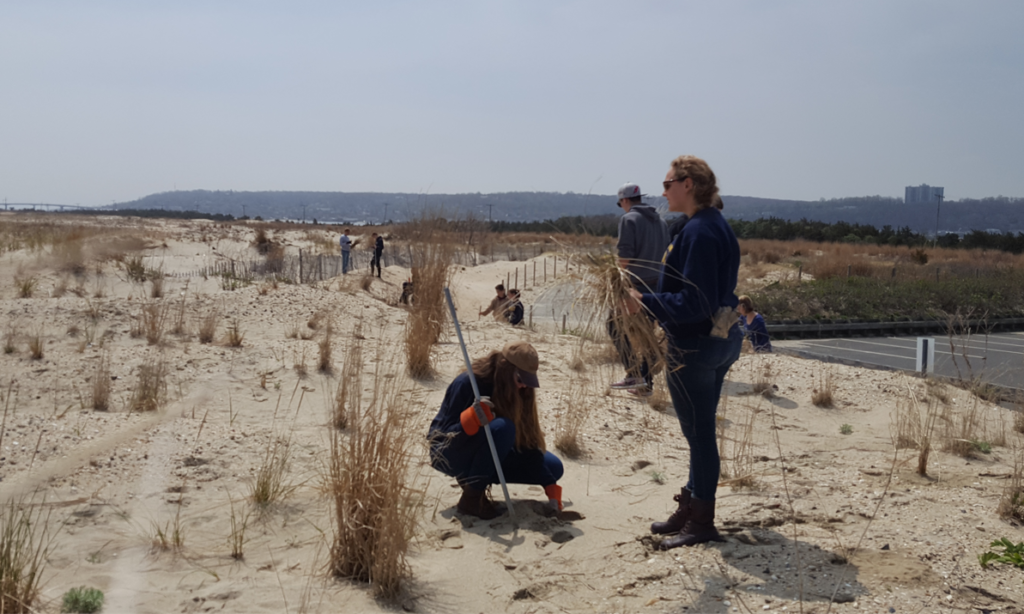In June 2020, New Jersey became the first state in the nation to incorporate K-12 climate change education across content areas when the State Board of Education adopted the 2020 New Jersey Student Learning Standards (NJSLS). These standards go into effect September 2022. New Jersey Audubon is working with multiple partners across the state and country to provide effective resources and professional learning.
Email allison.mulch@njaudubon.org for more information.
New Jersey Climate Change Education Hub
This on-line portal was launched to connect K-12 educators to the resources they need to integrate climate change into their curriculum for all subject areas and grade levels. The new Hub was created as part of the New Jersey Climate Change Education Initiative; New Jersey Audubon is part of the coalition of non-profit and higher education institutions along with Sustainable Jersey, New Jersey School Boards Association, The College of New Jersey School of Education, SubjectToClimate, and the National Wildlife Federation.
Resource Hub includes:
- Exemplar Lesson Plans developed by teachers that are NJ-centric and aligned with NJSLS.
- 1400+ Teaching Resources reviewed by scientists and teachers searchable by keywords, subjects, grade level, NJSLS, and more.
- Professional Learning workshops to demonstrate how to teach about climate change and help with curriculum development.
- Guidance For School Boards to support schools implementing the climate change education standards.
Resilient Schools Consortium (RiSC)
The Resilient Schools Consortium (RiSC) curriculum explores climate change, resilience, environmental justice, and community vulnerability and empowers student action. Started in New York City as a partnership including National Wildlife Federation, New Jersey Audubon launched an expanded version of RiSC in New Jersey in 2021. The RiSC program is currently funded by the National Oceanic and Atmospheric Administration (NOAA) and the Federal Emergency Management Agency (FEMA).
Email us at allison.mulch@njaudubon.org to join a cohort.
Building Ecological Solutions for Coastal Community Hazards (BESCCH)
Building Ecological Solutions for Coastal Community Hazards (BESCCH) provides background and examples of student problem-based learning (PBL) related to climate change and sea level rise throughout New Jersey. Funding for this project was provided by the National Fish and Wildlife Foundation.
Includes:
- Ecological Design Challenges providing real-life scenarios that outline the problems faced by six municipalities in New Jersey. Each scenario is written to challenge students to research and design their own ecological solution for the problem.
- Schoolyard Stewards provides information about, and lessons conducted by, five schools that were challenged to design and implement an ecologically-based sustainability project on their school grounds or in their community.
- Designing and Implementing Ecological Solutions Using A Problem-based Learning Approach (PBL) introduces several problem-based learning units that were used by two high school teams to design and implement ecological solutions for a nearby marsh, shoreline or water body.
- Student Engagement in Long-term Ecological Monitoring provides a basic understanding of the ecological monitoring process and features valuable resources for participating in the monitoring of local saltmarshes, wetlands and shorelines.
Work with our education team to implement these or similar projects at your school!
EcoSchools U.S. in New Jersey

In collaboration with National Wildlife Federation, New Jersey Audubon implements the Eco-Schools U.S. program across the state of NJ.
Eco-Schools U.S. provides you with the framework to make positive, lasting change in your school community. Easily integrated into your existing curriculum with support, resources, and training provided by NJ Audubon’s education team, so you still meet the educational standards you need to teach, all without taking extra time out of the school day.
Schools implement action plans created by student-led teams, and made up of user-friendly action cards, centering equitable nature-based solutions. Through student action, students think creatively and critically about environmental and sustainability challenges at their school and develop place-based solutions, including climate change actions. As students implement their plans, progress is measured, helping them gain recognition with schoolwide awards.
In addition to specific project support, New Jersey Audubon gratefully acknowledges our additional funders including:









